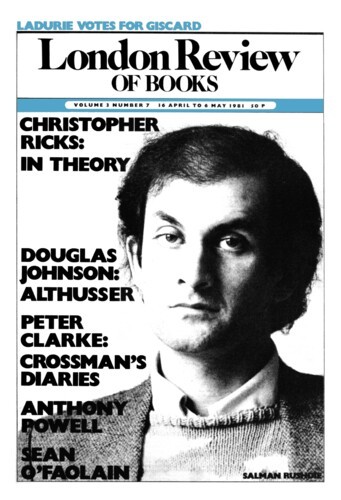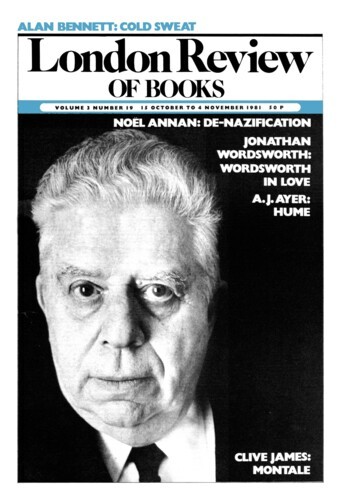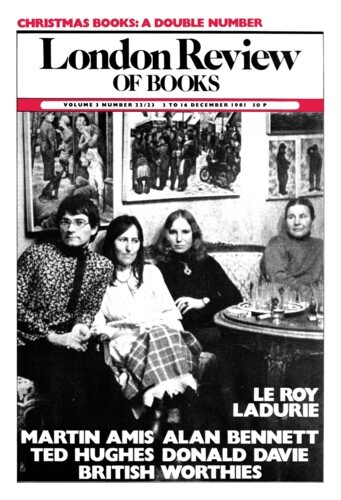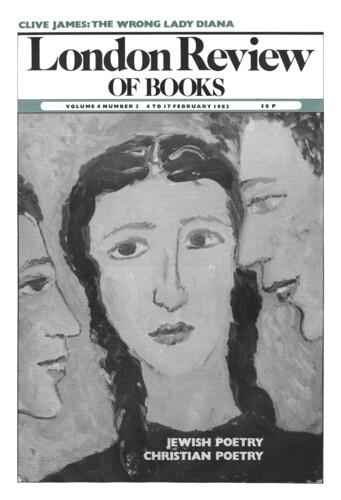Althusser’s Fate
Douglas Johnson, 16 April 1981
‘Is it easy to be a Marxist?’ Louis Althusser put this question to a crowded audience at the University of Picardy in 1975. Is it possible to be an Althusserian? The question has to be asked now. Althusserian Marxism has always been under threat, but since the tragic events of last November we are obliged to wonder whether the ruin of Althusser’s own life and career, as he faces a future necessarily bounded by the mental hospital, will also encompass the definitive destruction of his philosophical work. If so, Althusser’s story has a very real relevance to the history of the French Left.





